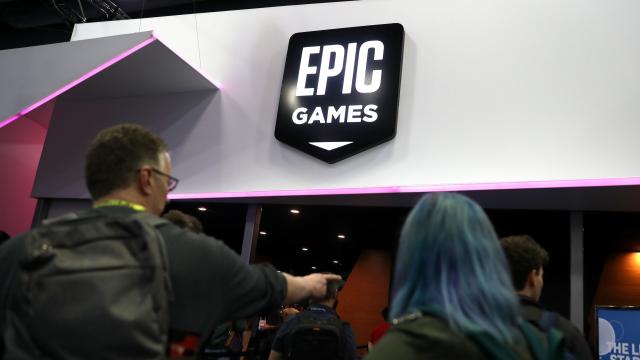So much is revealed when court documents are officially unsealed, and in the case of Epic Games’ antitrust complaint against Google, we now know that Google considered buying the Fortnite maker outright “squelch this threat.” Google also apparently attempted to convince Epic Games not to limit Fortnite to sideloading on Android devices, as doing so would lead to a poor user experience.
In the court filings, which you can download and peruse yourself, Epic cites an internal document where Google called Epic’s plans a “contagion” on its business. The company also alleges that “Google uses its size, influence, power, and money to push third parties into anticompetitive agreements that further entrench its monopolies.”
There is no public documentation indicating Google approached Epic with an offer to buy the gaming company, nor any clear timeline. Epic CEO Tim McSweeney tweeted in response to The Verge’s article on the matter that Google’s plan was “unbeknownst to us at the time.”
Epic also alleges that Google offered it a special deal to launch Fortnite in the Play Store. Though details remain sealed and redacted, the document then describes how senior Google Play managers approached Epic about its plans to limit Android users to sideloading the game.
One manager contacted Epic’s Vice President and Co-Founder to gauge Epic’s interest in a special deal and, among other things, discussed “the experience of getting Fortnite on Android” via direct downloading. The manager’s call notes state that she viewed direct downloading Fortnite as “frankly abysmal” and “an awful experience”, and that Epic should “worry that most will not go through the 15+ steps”.
Elsewhere in the document, there are claims that Google had acknowledged sideloading applications “leads to a [po]or user experience,” since it takes Android users more steps than installing an app directly from an authenticated app store. A Google employee even ran through the “install friction” that makes direct downloading a “bad experience” for users.
Google’s bits to Epic reads like persuasion as to why it should play by the Play Store rules and distribute through it. There’s even mention of how sideloading would keep users from receiving consistent app updates that were necessary for the performance and security of the game, ultimately resulting in “significant user confusion.”
Epic Games is suing Apple and Google for removing Fortnite from both app stores after it was banned for using its own in-game payment system. But the case has become a part of a significant state antitrust lawsuit against Google, which argues that its general practices are anticompetitive. The sideloading piece is intriguing because the ability to install apps outside of official app stores is part of what makes Android more open than Apple’s platforms. But if Google is telling app developers that sideloading is awful and pushing them to offer apps in Google Play, well, that’s not exactly in the spirit of openness. For its part, Google denies the claims and maintains that its ecosystem is open to all developers wanting to distribute apps safely through its app stores.
